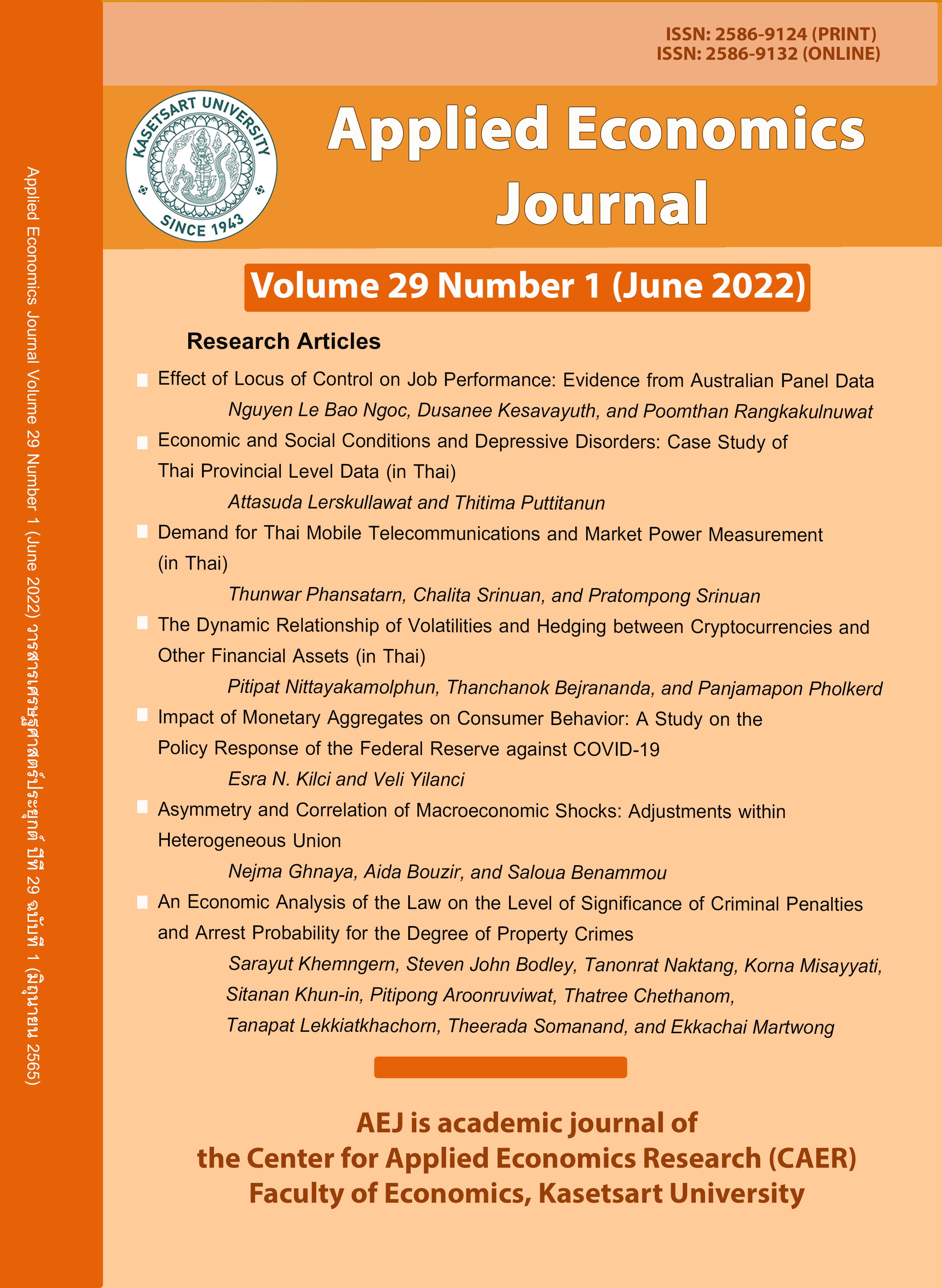An Economic Analysis of the Law on the Level of Significance of Criminal Penalties and Arrest Probability for the Degree of Property Crimes
Main Article Content
Abstract
Crime is a persistent social phenomenon arising from the committing of criminal offenses against the law of the state. Criminals' incentives or motivations for criminal acts are affected by many factors such as the severity of penalties, the chances of getting arrested, level of education, gender, socio-cultural factors, and so on. This research focuses on the correlation between the severity of criminal penalties and the probability of arrest and the seriousness of crime using concepts and processes of economic law. This includes mathematical modeling as well as testing the statistical significance of the models. The results show that it is the severity of legal penalty that reduces property offenses. A person's behavior changes when they feel they may face a high magnitude of criminal penalty. In other words, in judging whether to perform a criminal act towards property, criminals do not consider the probability of arrest but look at the criminal penalty. The Thai legislature will be able to take this conclusion into consideration in order to modify or create appropriate legal measures in the future. One of the most suitable policies is increasing the size of legal penalties in the Thai criminal code. When people perceive severe punishments, they will commit fewer crimes. Increasing the size of legal penalties can be achieved in a number of ways, including increasing the size of fines and requiring longer prison sentences.
Article Details

This work is licensed under a Creative Commons Attribution-NonCommercial-NoDerivatives 4.0 International License.
The paper is published under CC BY-NC-ND, in which the article is freely downloaded and shared in its original form non-commercially and its citation details are identified.
References
Cooter, R. (2016). Law and economics. Berkeley: Berkeley Law Books.
Gordon, A. H. (1998). Sex differences in emotion: Expression, experience, and physiology. Journal of Personality and Social Psychology, 74(3), 686-703.
Gujarati, D. N. (2009). Basic econometrics. Singapore: The McGraw-Hill.
Hjalmarsson, R. (2012). The impact of education on crime: International evidence. CESifo Dice Report. Journal for Institutional Comparisons, 10(2), 48-55.
Kanlaya, V (2013). Data analysis using MS-EXCEL. Bangkok: CU Book. (in Thai)
Kizilgol, O. (2017). Socio-economic and demographic determinants of crime by panel count data analysis: The case of EU 28 and Turkey. Journal of Business, Economics, and Finance (JBEF), 6(1), 31-41.
Kongsak, C (2008). Economic statistics. Bangkok: CU Book. (in Thai)
Krisdika, K (2020). The criminal code of the Kingdom of Thailand (Vol. section 59). Bangkok: Office of Council of State.
Kruttschnitt, C. (2013). Gender and crime. Annual Review of Sociology, 39(1), 291-308.
National Statistical Office. (2021). The criminal cases, Retrieved from http://www.nso.go.th/sites/2014en/link
Nil, P. (2019). The criminal code of the Kingdom of Thailand. Bangkok: Athaya Co., Ltd.
Pichai, N. (2019). Thai criminal code. Bangkok: CU Book. (in Thai)
Pokpong, S. (2016). Advanced criminal laws . Bangkok: Winyuchon. (in Thai)
Sangnuan, S. (2010). Probability and statistics. Bangkok: CU Book. (in Thai)
Thanyarat, T. (2015). Microeconomics mathematics. Bangkok: Faculty of Economics, Ramkhamhaeng University.
Yoksiw, C. (2019). Criminal code summary. Bangkruey: PKK Printing Limited. (in Thai)


